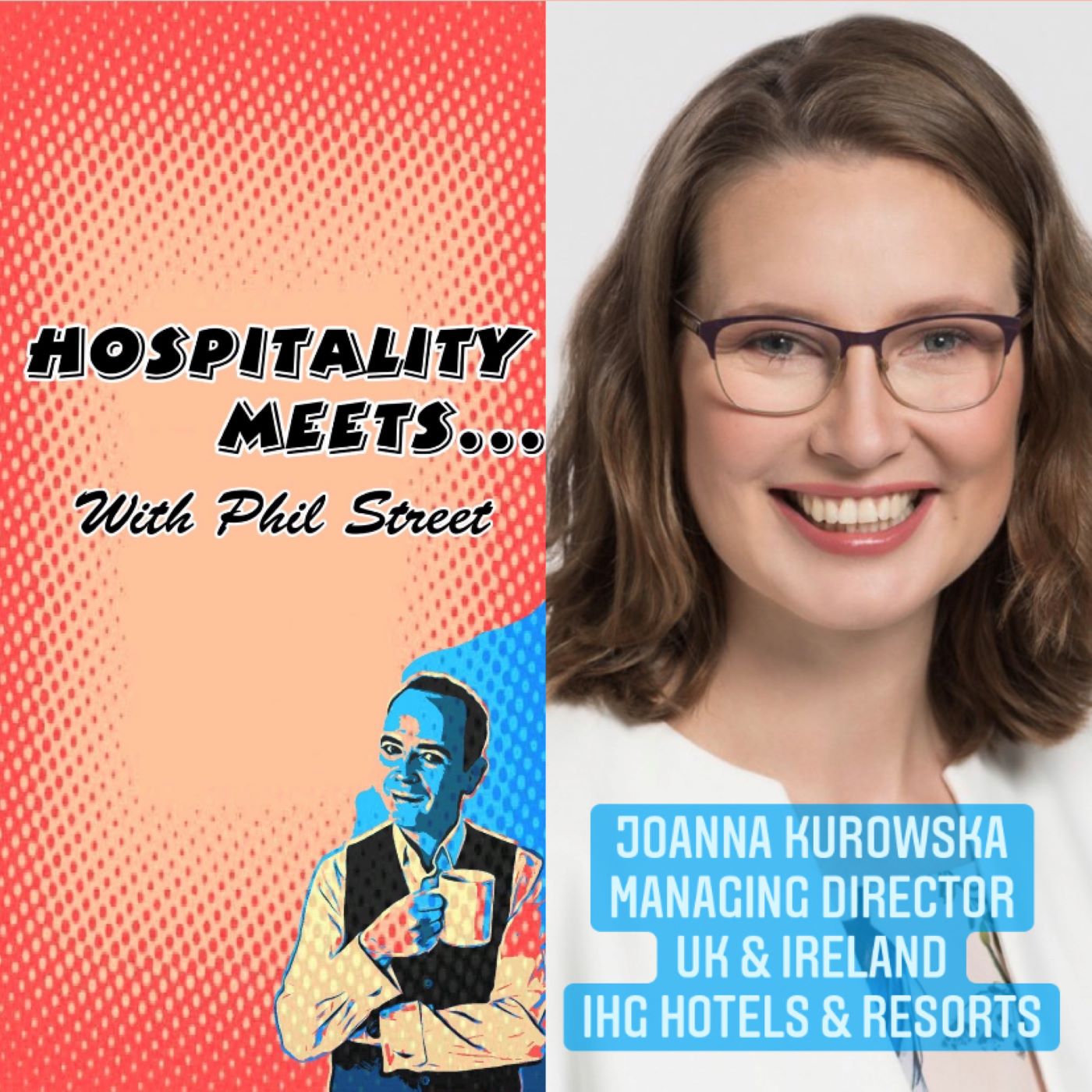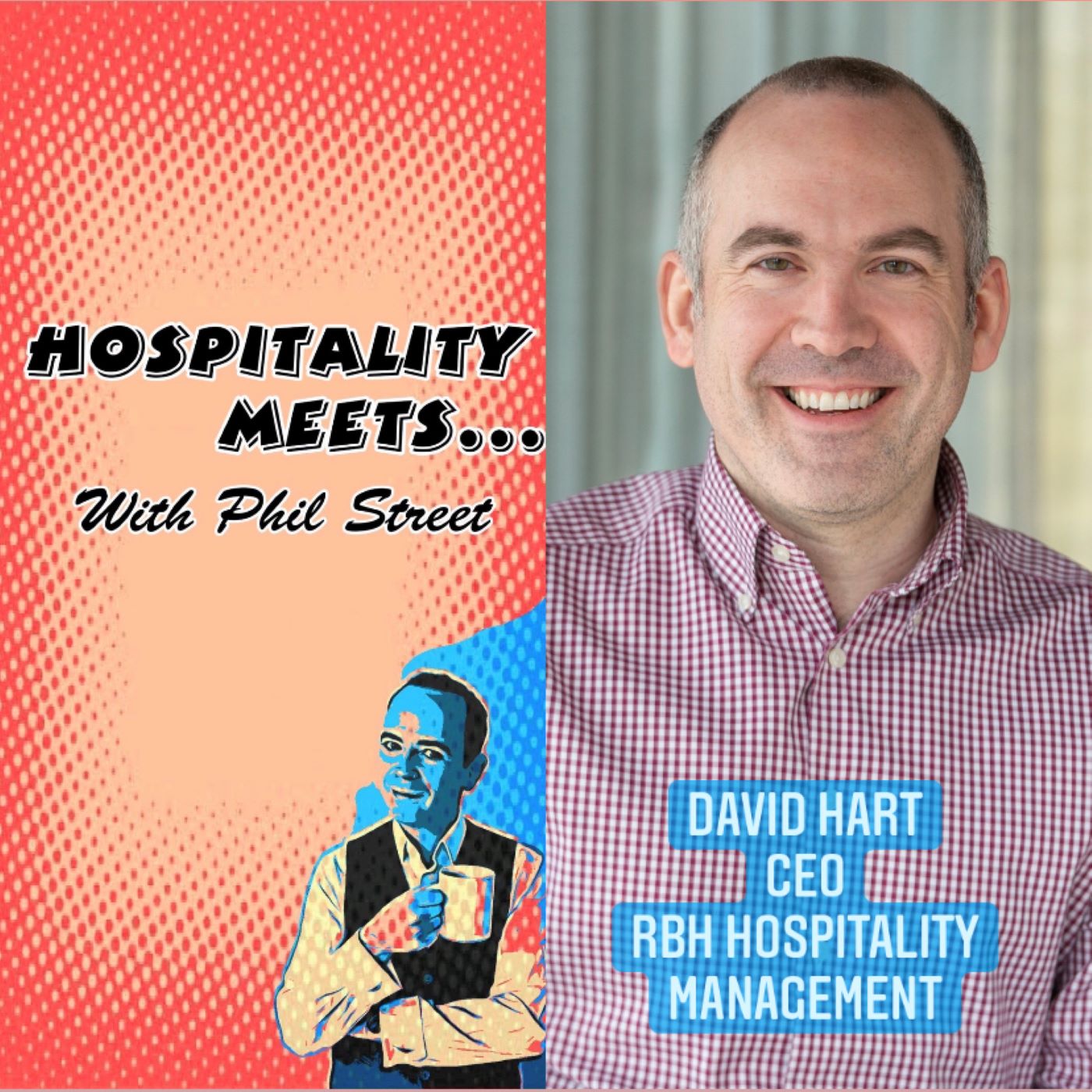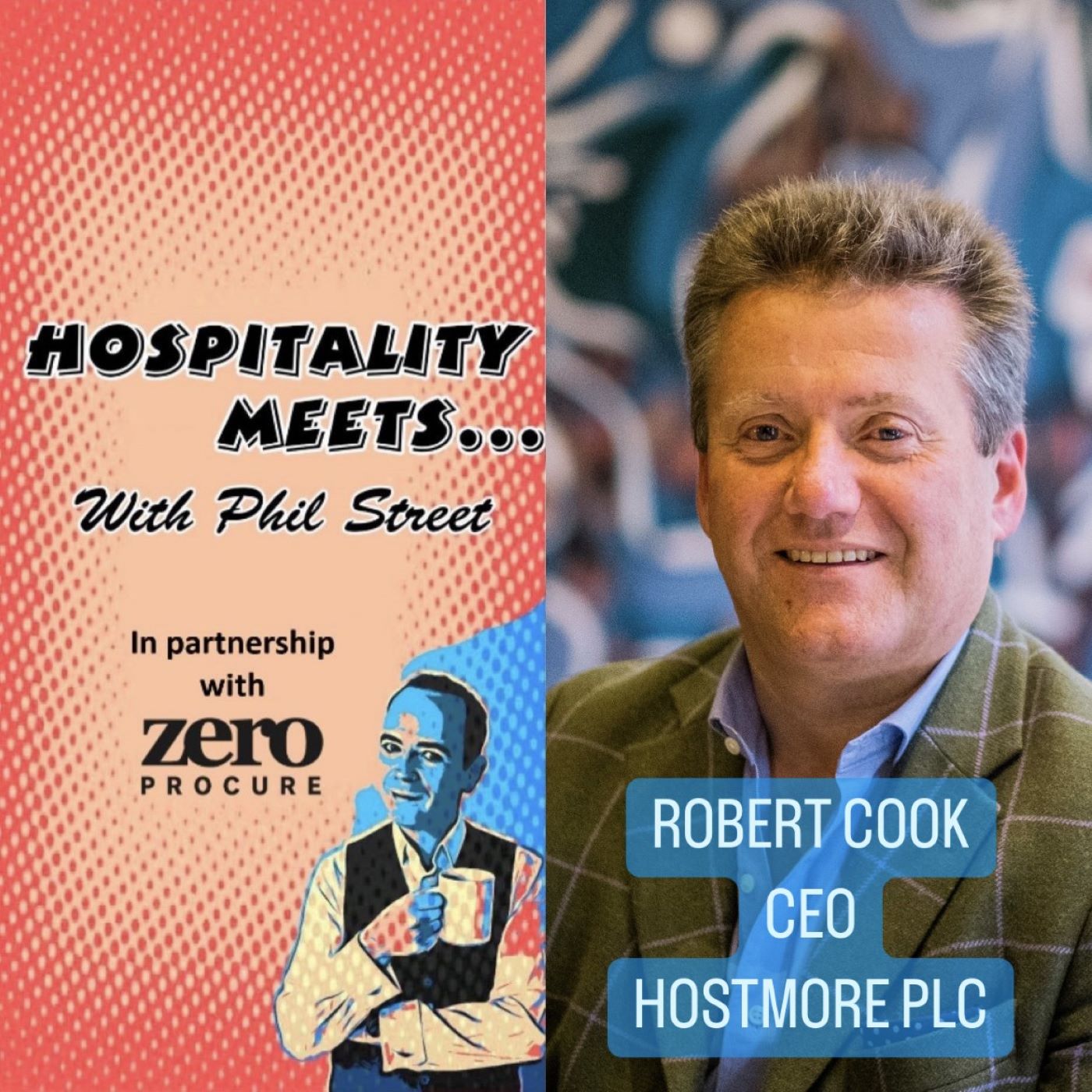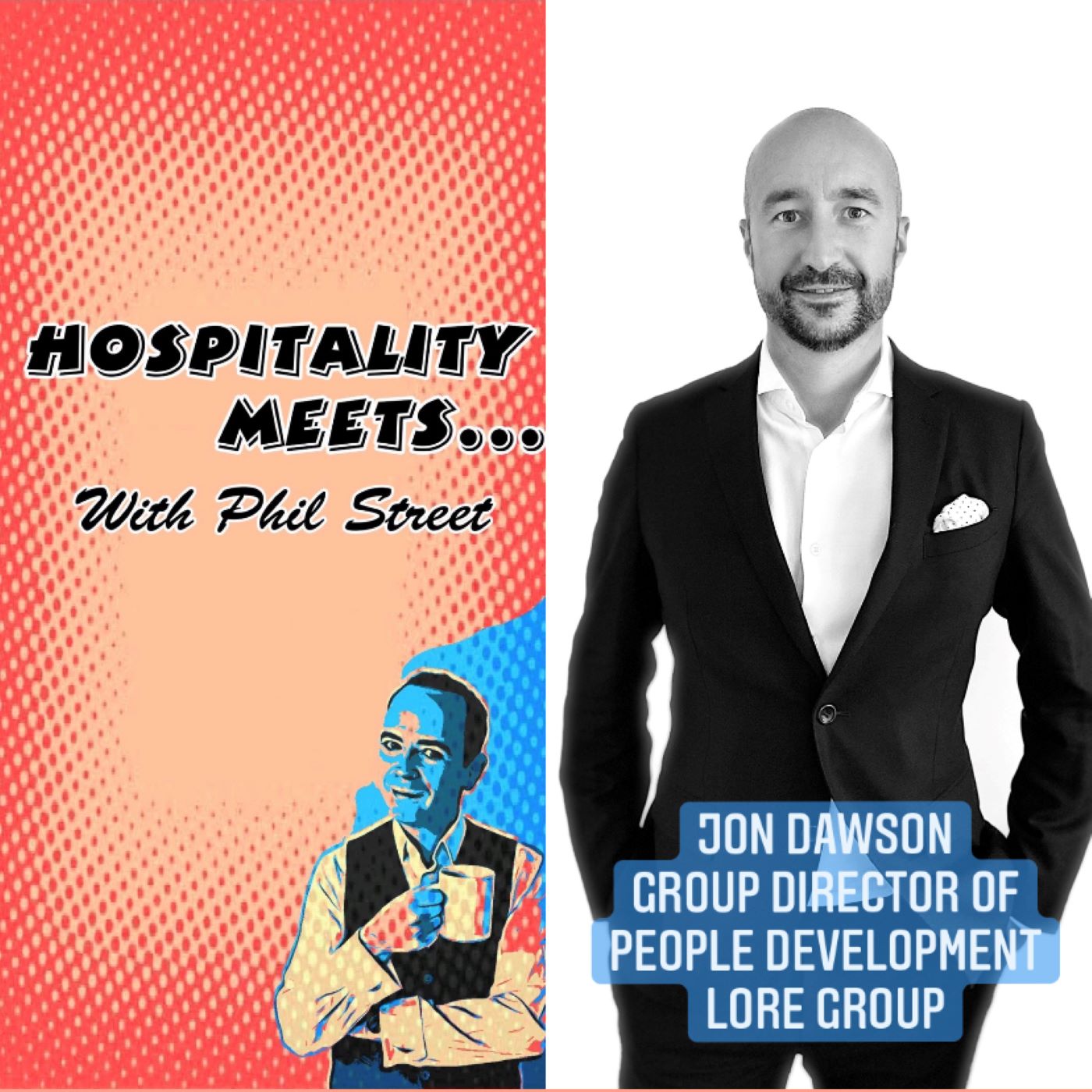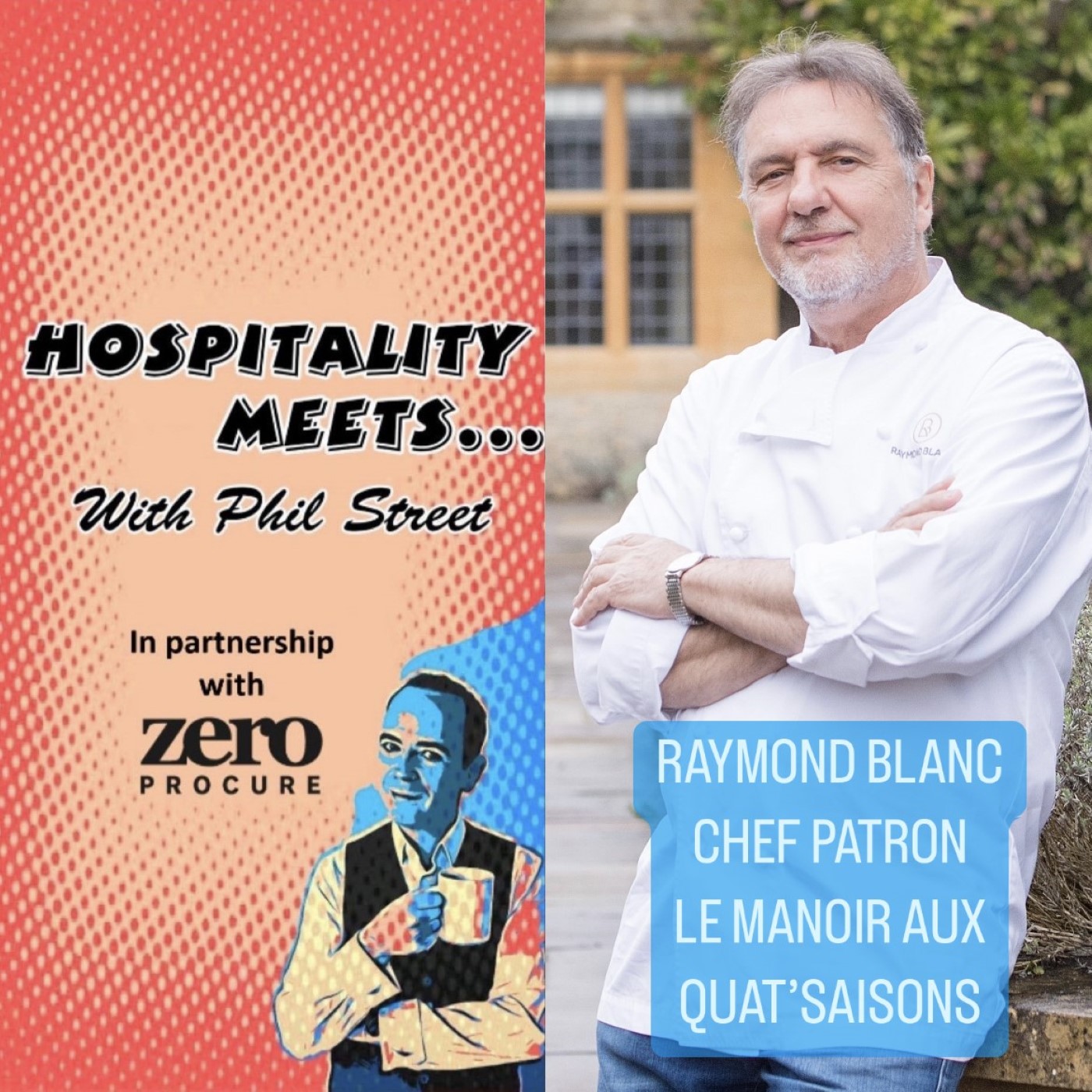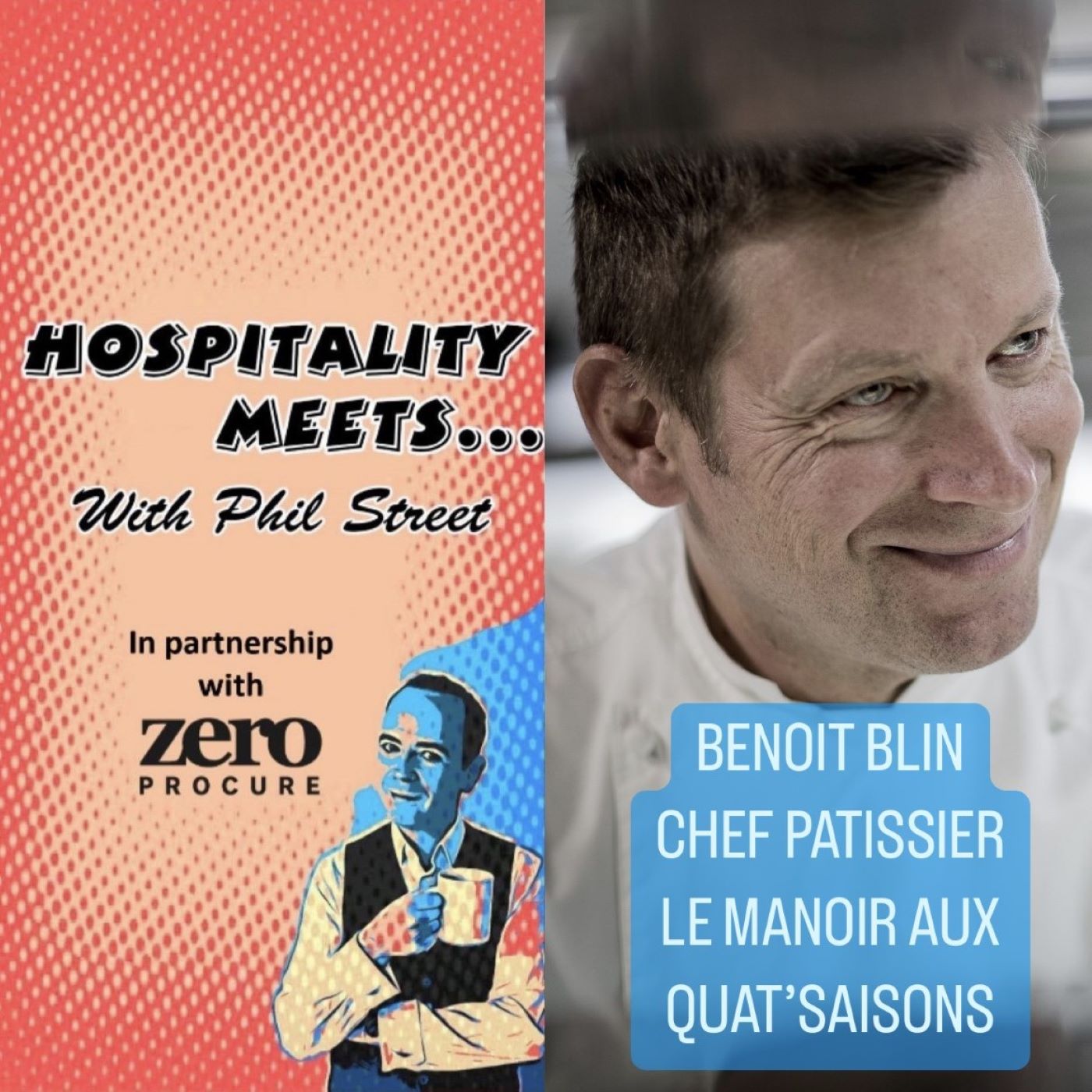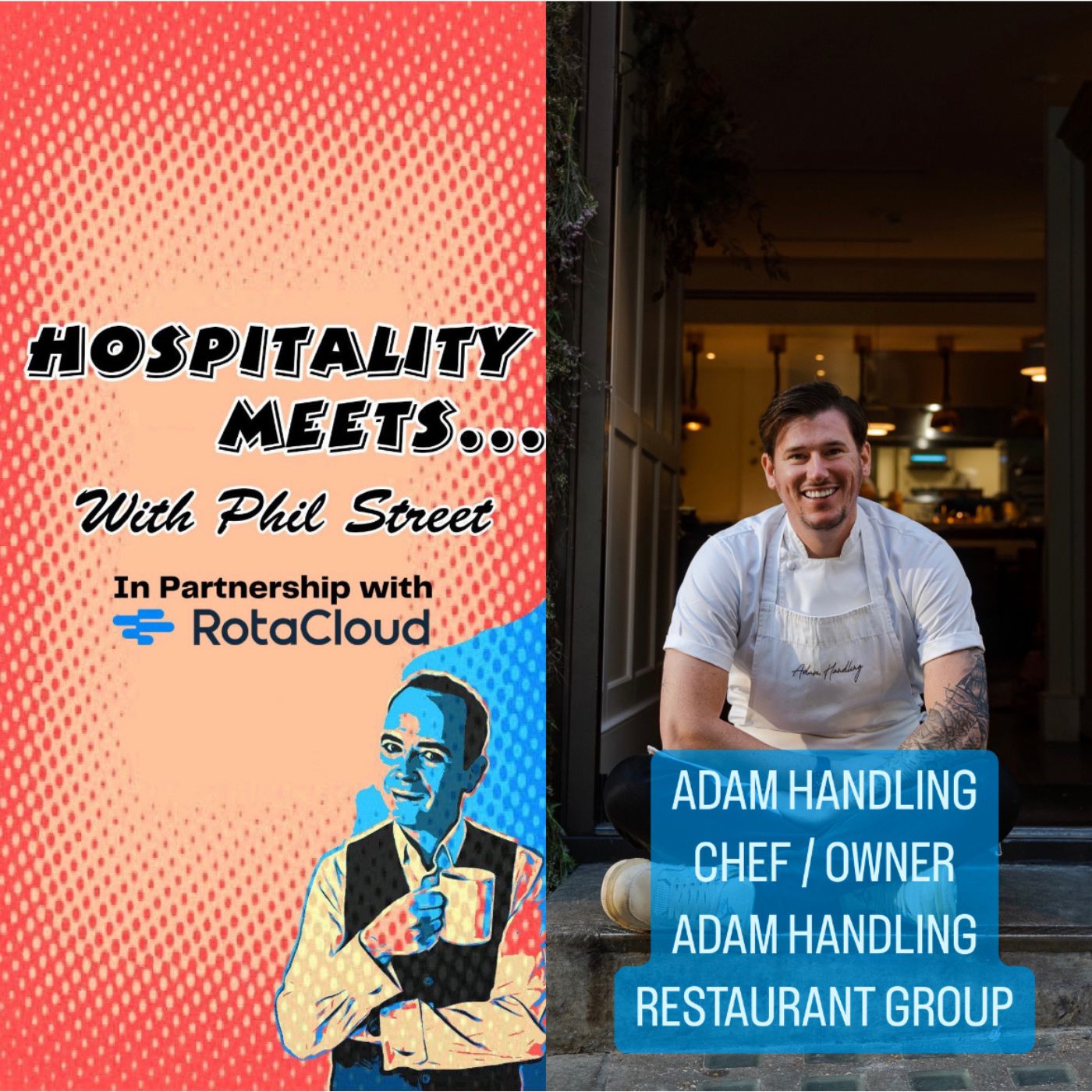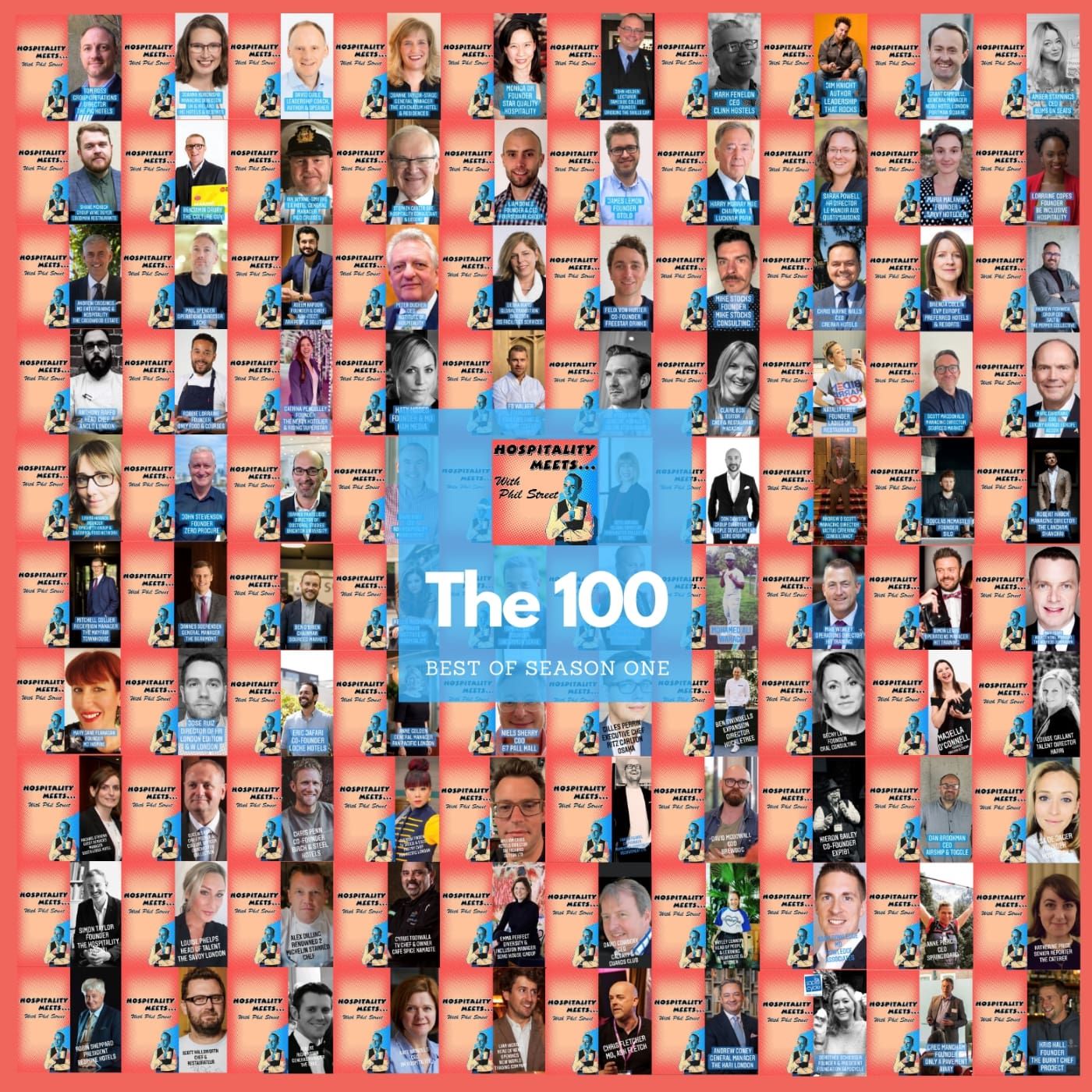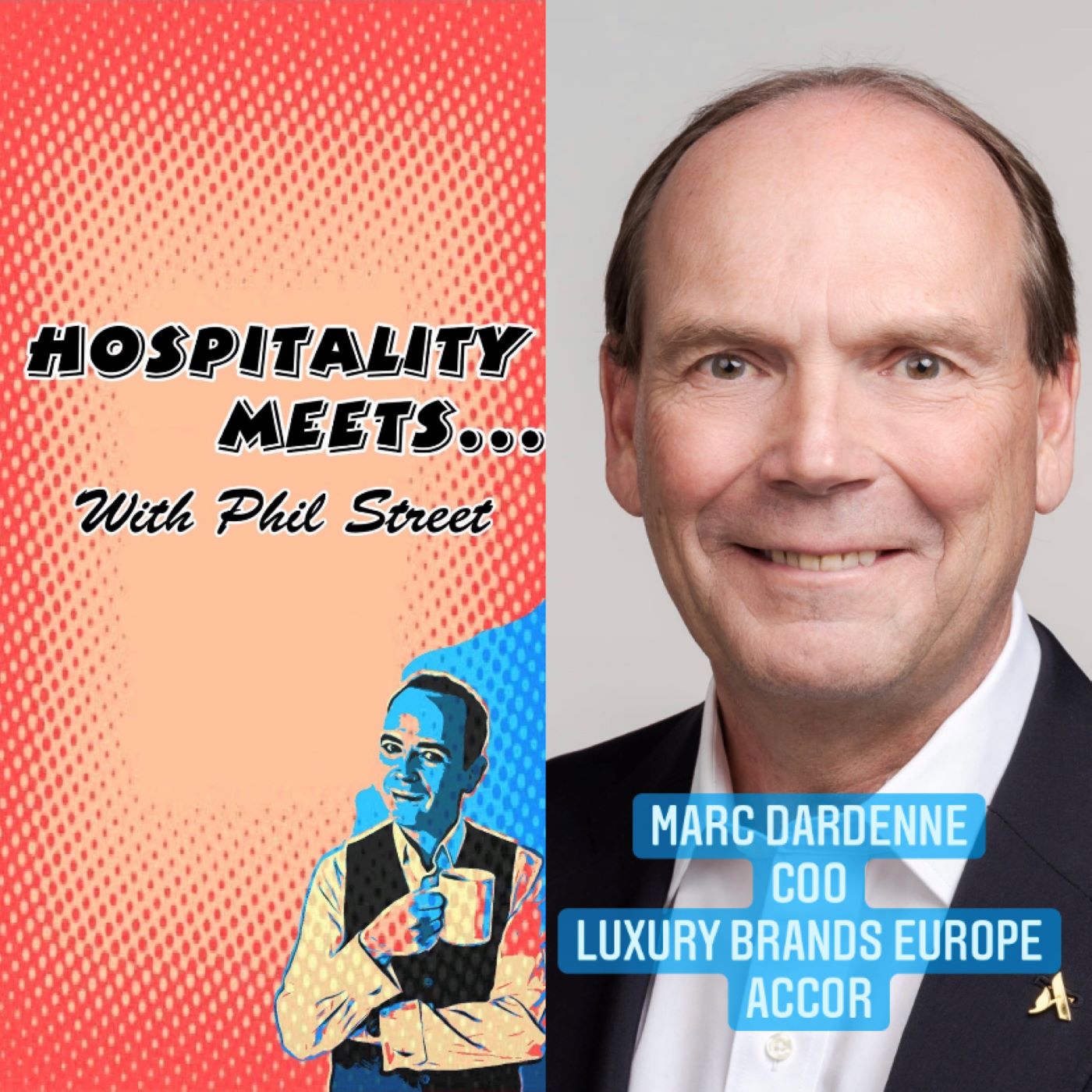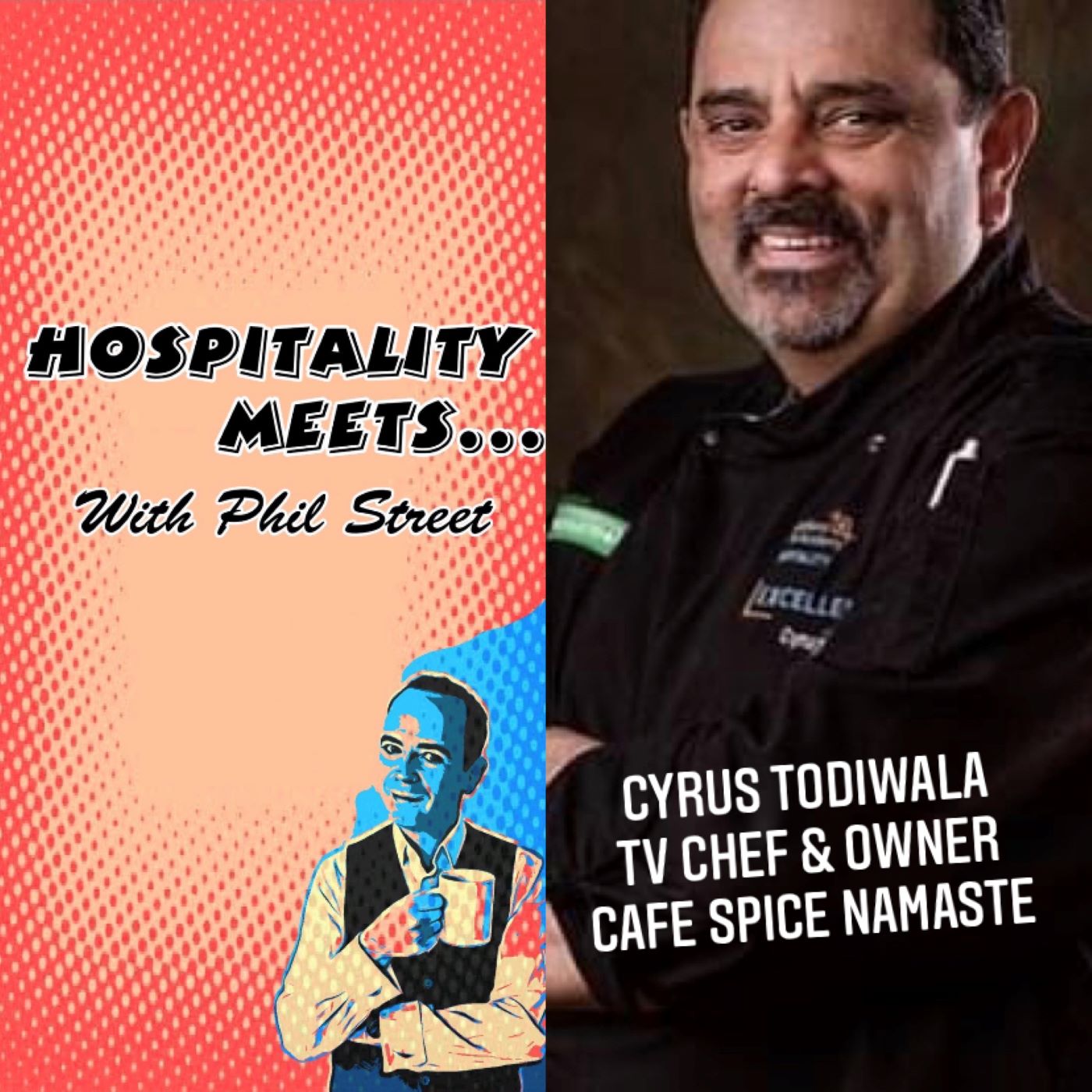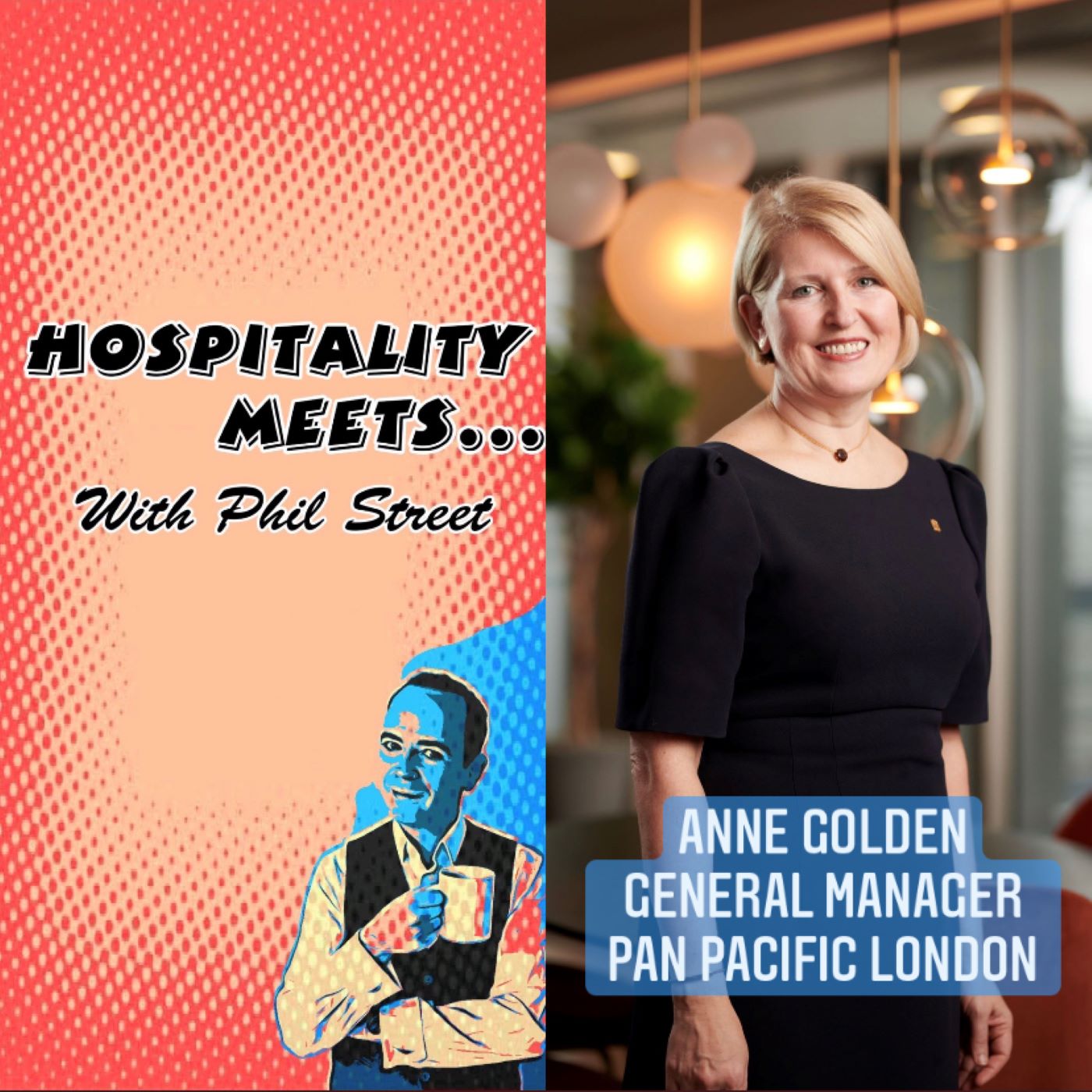#181 - Hospitality Meets Niko Karstikko - Technology, Trust, and Transformation

What happens when you merge tech, hospitality and proprietary AI? The answer may well be the future of hospitality in the form of short stay power brand Bob W, headed up by todays guest, the awesome Niko Karstikko.
Niko and Phil dive deep into the world of innovation in the hospitality industry, featuring an engaging conversation around the continued development of Bob W, a revolutionary hybrid accommodation brand. In this episode, you'll hear all about Niko's journey from an Air BnB Super host to a tech entrepreneur, and how he's leveraging technology to reshape the guest experience, from automated check-ins to bespoke local experiences. We'll discuss the challenges of breaking away from traditional methods, the importance of customer-centric solutions, and the exciting future ahead for the hospitality sector.
Whether you're curious about the latest tech trends in travel or looking for entrepreneurial insights, this episode has something for everyone. Stay tuned as we explore how Niko and his team are creating the most loved hospitality brand around, one innovative idea at a time
The Guest
Instagram - https://www.instagram.com/nkarstikko/
LinkedIn - https://fi.linkedin.com/in/nikokarstikko
Bob W - https://www.instagram.com/bobwco/
Niko Karstikko is a Finnish tech entrepreneur reinventing the hospitality industry as Co-founder and CEO of Bob W. Bob W is a tech company operating in hospitality and the first international climate-neutral hospitality provider. Under Karstikko’s leadership, Bob W has raised a total of over €70M in funding, and outperformed hotels and competition, whilst expanding to 10 countries and 17 cities across Europe operating 36 aparthotels to-date.
In addition to previously being the founder and CEO of VC-backed multinational consumer tech startup SportSetter (exit in 2016), Karstikko is also an experienced hospitality entrepreneur and occasional angel investor with a Bachelor degree in International Business and Finance from the University of South Carolina.
The Sponsor
Today’s episode comes to you in partnership with RotaCloud, the people management platform for shift-based teams.
RotaCloud lets managers create and share rotas, record attendance, and manage annual leave in minutes — all from a single, web-based app.
It makes work simple for your team, too, allowing them to check their rotas, request holiday, and even pick up extra shifts straight from their phones.
Try RotaCloud’s time-saving tools today by heading to https://rotacloud.com/phil
This podcast uses the following third-party services for analysis:
Podcorn - https://podcorn.com/privacy
Phil [00:00:00]:
And a massive hospitality meets. Welcome to Nicoll Karstiko.
Niko [00:00:04]:
Thanks for having me on, Phil. How are you doing? Love and life. Thank you. February vibes. We're getting over the low season bit by bit. Spring is upon us. Opportunities are here. I tend to be an optimist and think things will go for the better.
Niko [00:00:20]:
So let's hope I'm on the money with this one.
Phil [00:00:23]:
Here, here. And actually, I made a note of that in your notes that you very kindly sent through ahead of our chat around the. The fact that, you know, like, if you just get your head in the news at the moment, it's just a. Could be a bit depressing. But actually you had a wonderful way of kind of summarizing this to me, which as optimists, I think just kind of live and die by, is that the pendulum will swing back and it will probably swing back quicker than you might think it will.
Niko [00:00:52]:
I certainly hope that and believe that at the end of the day, that's what us humans do. And so that's the same rings true for industries, for interest rates, for peace and war and everything else. So we'll get back to the good side of it soon.
Phil [00:01:10]:
Absolutely. And at the end of the day, you can't really fix problems or the problems in your life with pessimism. Right. You need the optimist, optimist part of your brain to kick into play, to get past stuff.
Niko [00:01:20]:
That's true. That's true. Us humans are a pretty resilient bunch. So I have faith in it. Us.
Phil [00:01:26]:
Yeah, quite right, too. So, yeah, just tell the world who you are and what it is that you do.
Niko [00:01:33]:
So, yeah, my name is Nico. I'm the group CEO and co founder of Bob W, which Bob W. Is a smarter alternative to hotels and random rentals. Effectively, we are a hybrid of the best of the hotel experience, best of the short stay rental experience, aka what consumers would probably call Airbnb, packaged up into this lifestyle brand called Bob W. Built around this avatar of the perfect host. And under the hood, we make the whole thing run on technology. So on the one hand, we take human error out of hospitality, we reduce a lot of the costs and inefficiencies, and on the other hand, we actually elevate that experience by having amazing self service apps, this amazingly empathetic chat based customer service by Bob, the perfect host, and of course, a marketplace. So we've got gyms, breakfasts, digital services, et cetera, available during your stay, delivered either through the neighborhood or via digital platform.
Niko [00:02:39]:
And so really, a new hybrid accommodation category and very much a tech company operating hospitality. We grew eight x two years ago, three x in the last calendar year, and today we operate 17. We operate in 17 cities, ten countries, 36 live apart hotels and, yeah, continuing the path of growth in really what's essentially professionalizing and consolidating a sector of hospitality that's historically been run in a very fragmented way, dominated by amateurs, and really taking that to the next level. So that's basically our story. And I guess since there's a lot of hospitality people, the oversimplification, it's a sustainability focused, lifestyle apart hotel that runs on tech instead of people has got Airbnb vibes, which is obviously what the next generation of travellers is looking for. That's mixing business with pleasure on the road and factually spending a longer time on the road.
Phil [00:03:48]:
Yeah, well, I mean, it feels like, and this is just feel, this is not saying it's right or wrong, but like you're a proper moment in time business because, I mean, tech is advancing rapidly. I think that there's no question about that cost pressures and especially when it comes to and staffing issues and things like that, that are all kind of very, very widely spoken about throughout the global industry, not just any particular one territory. And actually it feels like you're scratching a lot of those itches.
Niko [00:04:21]:
So I think, as always with business, luck has a lot to do with it, but also luck favors the prepared mind. And I think this for us and for the co founder Sebastian and myself, it's been a long time coming. I've been an Airbnb super host since 2012 with a side hustle of seven apartments, which was really the backdrop of getting into this space and really seeing as an early adopter, both from a host perspective and from a guest perspective, this proliferation of the short stay rental market and through that seeing the excitement and the opportunity and that magic that many early adopters saw, and then obviously then also seeing the letdowns and the entrance to the markets of the sort of the stuff and the quality that lets you down. And so I think that backdrop over the years, and me obviously being a tech entrepreneur, you know, exited my last business in 2016. A fitness activities marketplace through apps and web, is those couple of things coming together. And it certainly feels like the timing is opportune, which in retrofit you can always say that, but at the time, you don't know.
Phil [00:05:45]:
Purely strategic. Purely strategic.
Niko [00:05:47]:
Purely strategic strategy.
Phil [00:05:47]:
You knew what you were doing.
Niko [00:05:49]:
Yeah, it was all a plan concocted six years ago. We're merely carrying it out. Sadly, that's not the case. But, I mean, we started out, we actually started with like, these independent resi apartments in Helsinki, in Finland, and very quickly we had just amassed a few of them. I mean, literally like four or five. And then there was really. There was a couple of scandals and really the legislation was changing in Finland. It was all in a very gray area.
Niko [00:06:19]:
Nobody kind of knew what was right and what was wrong. But because of those issues, we decided, hey, maybe we should go to commercial properties instead. And that certainly is a trend that's been raining very heavily in the last five years, which has factually helped us a lot. We are in commercial properties with 50 plus units these days, which if you look at what, on an EU level, on a country level, on a city level, the restrictions that's happening in the short stay rental space we would have put us in eventually in a very bad spot. So I think that we got lucky because we managed to also be quite nimble and changed tack.
Phil [00:07:04]:
Yeah. Do you think this is part of. Maybe. I don't even know if this is a thing, but kind of like the cycle of disruption is that Airbnb came along and completely disrupted that space. Like, nobody can deny that that is what happened. And, you know, somebody like you has got involved in that to a degree of success. I suppose, before it became a bigger mass than it is now, where it kind of completely unregulated. It was obviously at the time as well, it was a kind of real bugbear of hotel businesses because this unregulated behemoth was beginning to take over, as it were.
Phil [00:07:46]:
But I think there's a cycle. Then again, just looking really objectively outside, looking in kind of mentality is that. That's the natural order of stuff, isn't it? It's like somebody comes in and disrupts something and operates within the realm of the parameters that exist in the world to operate that thing. And then some people come along and go, well, that's a good idea, I'm going to jump on the bandwagon. I'm not going to do it to the degree of quality required by. I'm going to do it and see what it takes me. And then that's when the regulation needs to start coming in, because maybe the people that care a little bit less are now beginning to dominate the narrative around what it stands for.
Niko [00:08:27]:
Yeah, I think so. I mean, this is a natural cause. It's the creative destruction, as you put it, and as it's commonly called in the tech space, as well. It's, you know, to innovate. You know, it goes in cycles. And you've seen the same thing happening in from, you know, the taxi apps to different food apps to all sorts of elements where technologies come into play or simply newer, nimbler business models that does the trick. And like you said, you know, no denying Airbnb created that space. Airbnb proved that just in Europe alone, there are millions of listings worth of demand for short stay rental proposition.
Niko [00:09:15]:
And that demand, even with the cut down of supply because it's in residential and other zoning that's more complicated, hasn't gone anywhere. In fact, the modern customer is looking for something different. Their use cases are more broad. They're spending longer time on the road as we're, you know, the nine, the classic nine to five for many of us is gone. We can live a more flexible life and allow mixing business with pleasure and routine on the road. So that was proven by them. And then, of course, then first you saw it, that it was a cool couch in California for $20. What a great deal.
Niko [00:09:52]:
And you grow up and then you're looking for something else. But then there is no the offerings a hit or a mission. So this is probably the natural next step. We're effectively doing what Hilton's and the Marriotts of the world did in the seventies and eighties as it really was. The standard of hotels were created and they obviously used a playbook, you know, the 2000 pages, and trained a bunch of people how to do it. We're doing the same, but for short stay rental space, but applying technology instead of a playbook or tons of people. So it's the natural course and there will be a continued market for amazing, unique experiences from hosts to individuals. And that's great.
Niko [00:10:39]:
And it's super valuable and enriching the experience and enriching the opportunities for the guest. But there's also a massive need for a, you know, what you get Airbnb on steroids and steroids. It's quality standards, expectation management, technology, you know, really creating something better for the generation that ain't looking for that old status quo star rating of what a hotel should be or what have you.
Phil [00:11:11]:
Yeah, yeah. And I suppose by the same token then, that you're just building the trust in a brand fundamentally beyond whatever the model is, that ultimately that's what comes down, that's the reason why people will come in, is that you're giving them what they need, but they trust that you're giving them what you need. What they need.
Niko [00:11:32]:
Yeah, exactly. That's exactly it. And that's why it's so important for us the cliche mantra that if Coca Cola tastes every time, it ain't worth the label that it's printed on. And that's exactly what has happened in the short stay rental space. And that's so for us to fix that, we, on the one hand, create the exact same utilities and amenities, and lock systems and apps and self service. And all of that user experience is incredibly consistent. And the amenities utilities are consistent. So, you know, when you pick a bob, you can stay there for a night, weeks or months.
Niko [00:12:12]:
But also the other aspect of that is, you know, the modern traveler truly is looking to live like a local. And that authenticity, which is the thing by line that all hospitalities use. But actually, these short stay apartments, these Airbnbs, did the best job at it. You really could feel like you're in, you know, Mitte Berlin or Shoreditch London if that's what you were looking for. So for us, it's been sort of, we do that customization, so we brand every property by the neighborhood and create a design concept around the neighborhood. Standards are still all the same, but it looks very different for us in Berlin Mitte in our properties, or Shoreditch London or Atocha Madrid, they have a very different look. But you obviously recognize that certain level of design quality that we have, and the utilities amenities and the experience in terms of the stuff that you want to be consistent, are damn consistent. And that's the natural next step in the evolution of the short stay rental space.
Phil [00:13:15]:
Yeah, well, I can see you coming alive as you start talking about this as well. So it's clearly something that is absolutely connected with your heart as well as your business brain.
Niko [00:13:25]:
Listen, Phil from Finland originally, but I lived in five countries. My first summer job was a bed and breakfast manager in a eight unit, eight room bed and breakfast. It's, as with many people in hospitality, it really is a thing, sort of love for the game kind of thing, and that's the same for me. And, you know, I've been involved in tech, usually where tech meets physical product or physical service for, you know, 1213 years now. And it really felt ever since we started Bob w that this is coming home. It's really not a. The thought in your head of, oh, what are we going to exit this? What does that horizon think? It's really about building something that we love building it and really creating a new brand that is equivalent to this new elevated standard of hospitality that's unchained from the old thinking of what a hotel should be, but instead really catering to the customer. And this kind of mission is to create this, you know, the most loved hospitality brand for this next generation of traveler.
Niko [00:14:38]:
It's super inspiring and super fun, and I hope I get to do this a long time.
Phil [00:14:45]:
Nice. Yeah. Yeah. I mean, that would sound like a really great way to conclude a chat, actually, just with that kind of sound piece. But we're not going to do that.
Niko [00:14:53]:
Let's edit it till the end.
Phil [00:14:56]:
But actually, what I really want to talk about is kind of the journey within the journey, because you. Yes, you've arrived here, but you also touched upon the fact that you do have a background in tech, but I kind of want to go all the way back. And you've maybe started the journey naturally for us there by talking to us about your stint as a BNB manager. But, yeah, take us through your journey from there and kind of how have you, like, the decisions that you've made or the opportunities that presented themselves that ended up, you know, taking you to where you are now? That's a very open question. Like the most open question.
Niko [00:15:35]:
Well, let's. Let's put a clock on. So I don't yap for too long about this, but I guess the story, as I mentioned, from Finland originally, and then through. Through parents work, ended up in London for high school and then university in the States and a bit more in Paris, studying in Paris, and then Sutton Tikery in London, actually, latest in banking at Barclays. And. And it was like trying to put a, you know, a square piece into a round peg. It didn't make any sense. You know, both my parents were entrepreneurial types, and I'm this high energy, low concentration entrepreneurial type.
Niko [00:16:09]:
And it was a very different kind of world, but also a very, very good school. So. So. But the tie was getting a little too tight around the neck. So then I. Then I moved back to Finland under the guise of a masters, but actually started this fitness activities marketplace, plates with an old american college friend based out of New York. And it was really 15,000 gyms, yoga studios, rock climbing arenas in one app. And you could find fitness activities, pay for them, book classes, have free trials, et cetera.
Niko [00:16:42]:
And really an aggregator of fitness, which had this sort of mission of getting people to find the right facilities and activities that would inspire them to live, lead healthier lives, which was an app and a local service provider. Now, this will come back to us later with Bob W. So then we built that. We raised a bunch of venture capital. Cut my teeth in the sort of vc startup growth company world, which is a very different world from hospitality still to this day, and then exit that in 2016 to a corporate benefits conglomerate now. Also in 2012, I'd started Airbnb. Like I mentioned, being a super hosting. Absolutely loved doing it.
Niko [00:17:28]:
You know, even though I was stressed out about my startup, like, I never minded having the guests, guests coming in, and I just loved that hosting. Wanted to show them a great experience in Finland because, you know, you feel pride about your hometown and what have you, and you want to show those best sides of it.
Phil [00:17:44]:
Yeah.
Niko [00:17:45]:
But of course, then on top, it was nice to make the money. And my apartments were first it was my investment apartment, brother's investment apartment, and a couple of friends apartments, and the summer house, which is just outside of Helsinki. And you had this side hustle. And then when I had sold my tech startup and decided I wanted to take a break to find yin Yang or Zen or whatever I could get my hands on in Asia for cheap for like six months plus. And there at this point you start thinking, all right, so how am I going to manage these six, seven apartments remotely? I don't have any employees. And then you think, okay, well, hey, you know, good to do list for the cleaning company, six months of soap in the closet, couple of good backup plans, namely my, at the time, broke brother who would do anything for 40 quid, and, you know, I can manage this remotely and that's exactly what I did. But that obviously then started this thought process of, man, this whole Airbnb is such an amateur show that if you were actually in control of the software and the technology and the IoT devices, and you had the commercial resources of a hotel chain to actually create spaces for the next generation travel, you could actually create something that didn't just meet the expectations of what a hotel could be, but for the generation that isn't looking for a hotel and has a very different set of use cases while they're traveling on the road and mixing business with pleasure and spending a longer time, you could actually create something that would exceed those expectations. And so that's the backdrop where I went to then to Asia to try to blow some steam and take it easy.
Niko [00:19:33]:
After five grueling years in the startup and making all the learnings and screw ups, burnouts and all the fun stuff, and over there, I started noticing that even though I had been this early adopter of Airbnb and the likes, of course at that time you already started having the booking.com apartments and what have you. But we, us consumers still call it Airbnb to this day, and that will change with time, but really speaks to the experience. And then I found myself in Asia having that fatigue, like, you know, like, why am I not picking the Airbnbs, but I'm going to these uninspiring hotels instead. And then you start understanding that, okay, it's the hit or miss of the experience. Like, do I trust the host? Do I trust the pictures? Yeah, I trust the pictures, but isn't in the ghetto. What about key pickup? Will the washing machine actually work this time? Because last time it didn't and it screwed up my plans and I've got dirty laundry that I'm carrying around with me at that point. You know, you pick the Hiltons and the Marriotts, and they're not necessarily what I was looking for, but they were the easy choice to do. And that's when we started looking at the market with my german co founder realizing, you know, on the one hand, you've got a massively consolidated hotel space with brands and brand affiliations, you know, to the tune of half the, almost half the market, 7 million hotel rooms.
Niko [00:20:52]:
And you've got brands that represent standards from the four seasons to the ibis and to the premier inns and what have you, and you've got standards. Five star, four star, three star hotels. And consumers know what they get. Operators know what to operate, what services to offer, and developers know what to build even before they've even chosen the operator. Now, contrast that consolidated, standardized space with the short stay rentals, where there's 4 million plus listings in Europe alone, and according to some estimates, less than 1% branded operations. And you've got no big brands and you've got no standards. There's no such thing as a four star, one bedroom short stay apartment. There's not even a name for it.
Niko [00:21:39]:
Short stay apartments, short term rentals, vacation rentals apart, hotels, service departments, which means something different to Americans versus Europeans, generally speaking. Or as consumers say, Airbnb. But Airbnb doesn't own or rent or manage apartments. They're an Ota, a very innovative Ota, but they're an Ota. So. And obviously that was then the backdrop when we looked at, okay, we know what we're going to do. We're going to create a hybrid category, you know, best of both worlds, where, where, you know, we pick the best of the hotel experience, the branded consistency, the quality, the commercial scale, the promise, the legality. And from the short stay rentals that that live like a local vibes and that authentic hosting and then, of course, the utilities and amenities of an apartment and then packaged up into, as we said, lifestyle brand Bob W.
Niko [00:22:33]:
And Bob is really, you know, he's an unbelievable guy. He's, you know, it's good to ask you about Bob. Yeah, the unbelievable guy speaks nine languages. Just learned his 9th or maybe even 10th as we entered Copenhagen. He's clearly well educated, but a man of the people. He's always there for you. And unlike a normal host, he doesn't sleep, he doesn't need a lunch break, he doesn't smoke cigarettes. He answers your messages, on average, 1 minute, 20 seconds.
Niko [00:23:04]:
And he's just the best host you've had times ten. Now, anybody who's done enough Airbnb and booking.com, apartments and these kinds of things know that the best departments are made or broken by the hosts. And they are proof, living proof today, that you can have an amazingly empathetic hosting hospitality experience without actually meeting people. And that's exactly what we've created in the name of Bob W. And the whole service is built around him and interacting. And we're Europe's best ranked hospitality chain, international hospitality chain, period.
Phil [00:23:42]:
That's brilliant.
Niko [00:23:44]:
So we have NP's course hovering on 7.9, and we've really been able to prove it's product market fit, of course, for that next generation of traveler. But it's also, we've been really able to prove that you can have this amazing experience without having all that staff on site. And that's all built around the name of Bob. To us, success is when Bob says, you know, in reviews, hey, our guests say Bob is the best host ever. They know Bob's not a real person, but they play along with it. And we've really managed to nail that relationship between the guest and us. And that's really. And then under the hood, the whole thing runs on tech.
Niko [00:24:28]:
So we've got our own cleaner apps, operational apps, and consumer facing apps where we provide services like breakfast, gym, early check in, late checkout, super early check in. So you can get in up and by 07:00 a.m. all automatically, all in automation or through local service providers within a few hundred yards of the property. That's what modern traveler wants to do. They want to live like a local, and we can provide it with the services and those services not being loss leaders, as they sadly are for many hotels.
Phil [00:24:58]:
Well, I suppose that's the thing. But, you know, even just by you saying that, you're kind of again, I use the term scratching itches. You are scratching more than a few itches here. And notwithstanding, you know, that I'm a recruiter so, you know, I deal in people in the main and. But I try to remember the last time I spoke to a client who didn't talk to me about, you know, the fact that they're, you're struggling to find people. So if that's a problem, that's not going to go away. Part of that innovation is to surely utilize or learn and innovate in spaces that, that actually reduces the need for the quantity of people that you have, but whilst not diminishing the experience because that's ultimately, you know, massively important as well.
Niko [00:25:44]:
Amen. So, so, I mean, we have, we have, we estimate we have one 8th of the employees on site compared to a comparable hotel making.
Phil [00:25:53]:
Really.
Niko [00:25:54]:
So seven 8th is the technology and yet the ratings, reviews and ranting customers should be proof enough that we're succeeding in that.
Phil [00:26:06]:
Yeah, no doubt at all. So how do you. Actually, there's a couple of things I'd like to explore here. One, like idea is one thing. How do you fill in the blanks from idea to action? Because I know you're very entrepreneurial and you've got history in that space as well, but it's one thing to, that's quite a big idea, really. I mean, if you've just had that on a lounger in Thailand, let's just say for the sake of argument, it's where all the best ideas come from.
Niko [00:26:34]:
Amen.
Phil [00:26:34]:
Then you, there's a big gap to fill in in terms of how you go from that idea into opening. Bob W. Number one. So, and especially as an entrepreneur, and I think you were kind enough to highlight this in your notes as well, is that obviously part of being an entrepreneur is just accepting that you're going to make some balls ups along the way. But yeah, describe that process in terms of how you go from idea into actually, you know, building what is now, you know, something that's really a brand leader in its space and in other spaces.
Niko [00:27:08]:
Well, much appreciated with the flattering comments. You know, that's what I'm here for.
Phil [00:27:14]:
I'll come more often.
Niko [00:27:15]:
Just invite me. I'll be here. So, I mean, take this coming from an idea man, that if there's one thing I've learned is that ideas are a dime a dozen, it's execution that counts. And I would say is that probably one of my best, most important learnings over the years has been to really, you know, trying to stop starting a hundred things and finishing one and instead hopefully maybe picking 30 and finishing 15 of them.
Phil [00:27:49]:
Yeah, I'm on the same page.
Niko [00:27:52]:
So if we look back at the story of Bob, I mean, it has been so many twists and turns. So just to, just to walk you through the simplest ones, we started with residential apartments, then news all over finnish media, oh, secret hotels exposed and all this kind of stuff. Not about us, but not directly related to us. But then we're like, oh crap, we better find commercial properties. Then. Then going to start, you know, me and my german co founder in Dublin at the time and going to talk to professional landlords and basically getting laughed out of the room because we're, you know, two kids with no direct experience and we're not even getting the jargon right, you know, like the hotel jargon. And then sitting in Helsinki and hearing that, oh, a friend of a friend knows a guy who maybe you should talk to intel in Estonia somewhere neither of us have ever lived before, and then taking the ferry there, which is a two hour ferry from Helsinki, and then stepping on the left of a failed deal that got us our 1st 41 commercial units in a different country's capital and going, what the heck, let's give it a try. And this is, by the way, 2019 maybe, and we had none of our own tech at this point.
Niko [00:29:21]:
We purposefully decided not to build tech first, but to try third party stuff. And this is again coming from a tech entrepreneur. We're well capable of starting tech development, but we decided, let's give it a try. So summer works out great. 2019, like, oh, this is awesome, it's going well. And then September looking like the books are looking really empty for the next year. Maybe we should start something. And then just starting a b two B program off the whim.
Niko [00:29:46]:
And really what sort of ended up being why we are the go to choice for scale ups, tech companies, next generation companies these days. But just because all of a sudden October, November looks pretty damn empty in our apartheid hotel, then doing fundraising and of course the only kind of fundraising we know, which is risk capital and VC's, which is very different from a typical hospitality space. And then the pandemic starting and we're going, what the heck? We've, you know, how, how are we going to do this? Where are the customers? And then just completely pivoting to a whole different type of customer set, you know, the nurses and the cops coming to help out in the big city and creating the 63 step ridiculously clean standard because nobody trusted service department providers to keep the apartments clean. So we thought we'd have to go absolutely nuts and overboard with it. So then somehow managing to get funding during the pandemic and then managing to convince the first landlords in UK and Spain and Finland to take us on board, and then during the pandemic, first opening something in Finland, then something in Spain, which is a very different kind of culture to what finn and german co founders do and standards and all of that, and just sitting in a job site which is supposed to be ready, that's not then trying to figure out is how do I become a construction manager overnight here so I can try to salvage this project to then, you know, then, you know, getting out of the pandemic and finally being, oh, this, you know, pedal to the metal. Let's start, you know, really, you know, pushing this product, and then obviously, you know, hitting. Hitting the global financial Ukraine war and then global financial crisis, and obviously Finland and Estonia being affected and then finding, again, different kinds of customers. So, so, and then now leading up to, you know, us, you know, we talked about standards.
Niko [00:31:59]:
Those standards didn't come right away. There were screw ups along the way where, you know, walls were paper thin. And we learned that next time we got to have standards about what the walls should be like and etcetera. And then sort of leading up to just last week or the week before us securing another 40, €40 million money to expand, to really become the brand that's synonymous with this new category of hospitality and becoming a household name for the next generation of traveler. So, like, we could spend all night here talking about the things that would screw up. But I think ultimately, it's about execution and just having the guts to say we should pivot, we should rethink this, we should move around, we should learn from this. We screwed up here. What can we learn from it? And at the end of the day, I would say the ability, the pace to be able to own up to yourself and own up to making a turn on the dime is certainly the reason why I managed to get as far as we have, and I would say one of the most valuable things that I find in the entrepreneurial career.
Phil [00:33:11]:
Yeah. Yeah. I mean, I think that that's just generally good advice for business, isn't it? I mean, you know, how many businesses do we learn that fail? Okay. Of course there's always going to be some external pressures that play the part, but also they just don't, you know, they just do what they've done and they do it that way. And they don't evolve. And, you know, I mean, I just look at countless food based businesses that, I mean, I take my hat off to anybody opening a food based business at the moment because of all of these pressures. But there are still people who are doing it amazingly well and, you know, who understand that point of that evolution is so critical to the survival of not just their business, but any business. You know, you've got to move with the times to sound like my father.
Niko [00:33:59]:
Yeah, I mean, but it's so true and it's faster than ever. If you really look at the evolution of the business models currently. To stay put is to die. And I think that's probably historically been one of the challenges with hospitality, is that the top schools, the top brands, breed out a certain mantra of how to do things. But what's important to understand is that the customer has moved on, the customer keeps moving on. Art needs change. I mean, let's oversimplify. Pandemic happened and there's nine to fiverrs are few and far these days.
Niko [00:34:43]:
You don't have to take the 06:00 p.m. flight so you can on Friday, so you can leave office at four to make it right on time and then come back on Sunday night to make it back to the office on Monday morning. That's not reality to many of us. And purely that fact that you can quite casually mix between remote working and office working means already that your ability to travel and spend the time and immerse yourself into the cultures or, you know, is just changing people's requirements of travel. And then when you stay a little bit longer, you, you know, you have certain length of stay related amenities that you need, like kitchens. And then, or you bring your laptop, even if it's for a holiday, you need a place to work with it and what have you, and that's just change. So change is a beautiful thing. And I think there's a lot of players in hospitality that are scared of technology, but it's a constant and it's purely an enabler.
Niko [00:35:45]:
So we need to, if you're focused on solving customer problems as opposed to saying, well, this is how it's done and this is how it's always been done, you can't do wrong.
Phil [00:35:56]:
Yeah, I was going to ask you about the cynical view, actually, because I suppose this is, I'm guessing you might have been on stage or spoken to people about this kind of stuff before. Many a different thing around the world and you'll get, I would imagine, a bit of pushback on yeah, but can you really create an experience when you're stripping out people from the, from the process of delivering that experience? So that's the, let's, let's talk about the cynical view. How do you, how do you create an experience using tech as your, your main driver? I suppose in itself, especially initially, it is an experience to kind of see it in action, but then that probably only takes you so far.
Niko [00:36:40]:
So, yeah, once again, technology is to use, you know, use terms I learned in college, technology ain't worth shit in itself. It's, it's to do with, you know, what's problems does it solve for the customer? Can I improve the experience? And so we are very militant about not just what we want to build, but what we don't want to build. And it's all just about the customer having, you know, you know, solving the problem. So I think, you know, none of us say, oh, I had such a fabulous, you know, hotel experience last week. I loved the front desk. It was so great. I had a great time there waiting, waiting in line and doing this and that and you know, checking in at 03:00 exactly and leaving at twelve. So, you know, again, if you look at, and we talked about the cynical view is like, it's been interesting, this, there's a very hard line view is you cannot have empathetic hospitality experience if you're not face to face.
Niko [00:37:52]:
Now, I too love face to face experiences and there's a time and a place for it. But the hotel industry has been dying to hold on to the front desk, which comes at a dear cost. First it was, okay, let's do front desk. Then they were thinking, okay, let's innovate, let's put, instead of a front desk, put a kiosk. Now where there's technology. So now the same guy who used to work at the front desk is hovering around the kiosk teaching you how to use that computer and how to print the cards and do all that confusing stuff. And now having been to recent technology fairs, there's these sort of like digital front desk kind of like there's a like a, like a, what do you call it, a hologram kind of vibes and this kind of thing. And, and you're, you're just like, you know, I get it if you want to have an empathetic exchange, but is really the best way to do that is to make somebody wait in line, then fill up a piece of paper of information they already filled up online when they book the damn thing.
Niko [00:38:58]:
Take your credit card details wait to print the key card and send you off your way. Like, if you really cared about the empathetic thing, you know, we've had the technology in our pockets to do this for, you know, a better part of a decade. You know, if you really wanted to have that, that thing, you know, why not have all of that digitized and on the front door when people arrive and, hey, what's up, man? My name is Nico. I'm for brand so and so. Listen, you're already checked in. Just wanted to see if there's anything I can do to improve your stay, show you around, book a dinner. I mean, that compared to making people do this thing, that hasn't been relevant or needed, thanks to technology, for a decade. And that's kind of an example of holding onto that thing for dear life.
Niko [00:39:47]:
And we decided to skip it the whole way. We call it the last chicken ever, believe it or not, we remember your credit card details, your passport details. We remember, you know, the basic things, so we don't need to you to do check in every time. So when your hotel asks you, is your favorite hotel asks you, oh, great to have you again, Phil. Or great, thanks for checking in, Phil. Is this the first time you're staying with us? And you're thinking, I've been here ten times. Technology's there to remember. Your food app remembers what you ate last time.
Niko [00:40:21]:
But for some reason, hospitality is still stuck in that way. So I think that's the ultimate. You know, if the problem you want to solve or the opportunity you want to create is have a human personal exchange. You know, create an amazing human, personal, human physical exchange. But, you know, innovate in the back end. Nobody's having a good time at the front desk.
Phil [00:40:42]:
Yeah, yeah.
Niko [00:40:43]:
Just throwing an example there.
Phil [00:40:45]:
No, no. And look, you've come alive again. I keep triggering your interaction with these. With these points, but you make great points. I mean, this is a very simplistic view, but it's like, toilets are the way that this is. This sounds like I've just gone completely off topic, but toilets are the way they are because that's. Nobody's found something. A better mode of how to build a toilet, basically, they come in many shapes and sizes, of course, but once upon a time, it was a hole in the ground.
Phil [00:41:18]:
So, you know, the innovation is taken as. But if somebody one day comes up with a better solution for the toilet, initially, people will go, well, we don't did that because this is the way I've always been to the toilet. I know that's a very crass example, but it's, it's very simplistic.
Niko [00:41:35]:
It's a very profound example. Phil. I guess there's, you know, as, as Henry Ford famously said, you know, that if he would have asked what customers wanted, they would have asked for a faster horse. And that's quite, that's quite descriptive of it is hard. Customers don't necessarily know what they want, but if you understand the customer's problems, the pain points, then start fixing them. You could really create something different. And the great news is hospitality. People in general are like that.
Niko [00:42:14]:
It just seems like then at the same time, there's this, I guess, high standard level of standardization in the industry, which is, to a certain degree, biting down on the opportunity to innovate. And that's why, in the grand scheme of things, it will happen. And that's why I'm very bullish on hospitality. And I'm not saying that just in our company, I believe that as people start buying stuff online instead of shops, we become a frontier where we have your attention for a long period of time compared to all sorts of traditional businesses. So we have the opportunity to become the platform for consumers, for experiences way beyond the actual apartment or the hotel room, as well as the centerpiece for attention, be it media or be it purchases and what have you. And that, I think, is really exciting, and I think it's an untapped opportunity.
Phil [00:43:19]:
No doubt you've convinced me. I'm sure you've convinced many, many people who are listening to this as well. I could sit here and talk to you all day just about all of this and everything that comes in between it, but I am eminently conscious of your time, and I'm very, very grateful for you. You've given up the time to come and chat to us about, about your journey. And I was really keen to explore this because part of the reason for this podcast existing in the first place is that people come into hospitality for many different reasons and at many different stages in their life. And ultimately, that's not your, your, I suppose, the background you started in, but it's, you know, you're ultimately, we're all consumers of hospitality, right? We all know what we want, what we like. And really what you've done is, it seems like this is a real coming together of everything that you've learned in your life, along with what you're passionate about. And, and so now you're, you know, I mean, 31 apart hotels as of this day, 17 cities, ten countries, and.
Phil [00:44:22]:
Yeah, well, I suppose if you've got time. What's next?
Niko [00:44:26]:
So actually, actually even better, we're up to 36 apart hotels.
Phil [00:44:31]:
Sorry, I can't read more in writing.
Niko [00:44:35]:
Not at all. So really now it's about expanding our footprint, first within the european continent and then beyond. It's about developing the technology. We've only scratched the surface of our opportunity of creating really personal, personally recognizable experiences where the experience to fill is very different than to Niko. And we can use technology to get there to really develop that. And of course our marketplace, we have industry first, like completely automated early check ins, late checkouts, where we play the Tetris game to figure out do we have space for you? And then can assign you to get into your apartment 4 hours early or leave 10 hours late for a fee or as a part of the loyalty program. So there's a lot of opportunities in the technology piece and then of course further developing the brand itself and the platform. This is a massive sector and there'll be more winners than just one.
Niko [00:45:40]:
But for us the vision is clear. We want to be the most loved hospitality brand on them market.
Phil [00:45:47]:
That's fantastic.
Niko [00:45:48]:
And today the numbers prove that we're on track with that. Of course the challenges become bigger as we grow to more and more locations and more and more cities and geographies, but I believe thanks to the technology and this sort of constant development, evolution, innovation inside the company, we'll be able to hit that mark and really become a household name, which is our, our dearest wish.
Phil [00:46:15]:
Fantastic. Well, I mean, look, that sounds like a great way to wrap it up. I wish you well with that. Sounds like you don't really need. Well, everybody needs a bit of luck, don't they? You need conditions to go your way and stuff, but yeah, I think you're just a proper joy to be able to have chats with people like you around your innovation in. In an industry that is ripe for it. You know, it's just ready to be innovated. Yeah, I shall absolutely look out for your progress and maybe get you back on in a couple of years and we can talk about further learnings of taking what is.
Phil [00:46:54]:
You know, it's a big business for a lot of people, but small business and hotel terms into a bigger business.
Niko [00:47:02]:
Happy to do that if we're still around. As my old, my old boss, when I used to work for NetJets, Berkshire Hathaway's private jet company, used to always tell me, is that Niko, it's gonna be just fine as long as you don't fuck it up.
Phil [00:47:19]:
And what a wonderful way to wrap it up. Nico, thank you so much for your time. Been an absolute joy.
Niko [00:47:24]:
Thanks for having me on, Phil. And thanks for being a voice for hospitality. It's a pleasure following your show.
Phil [00:47:30]:
Bless you. Thank you very much. Take care.
Niko [00:47:33]:
Cheers. Cheers.














